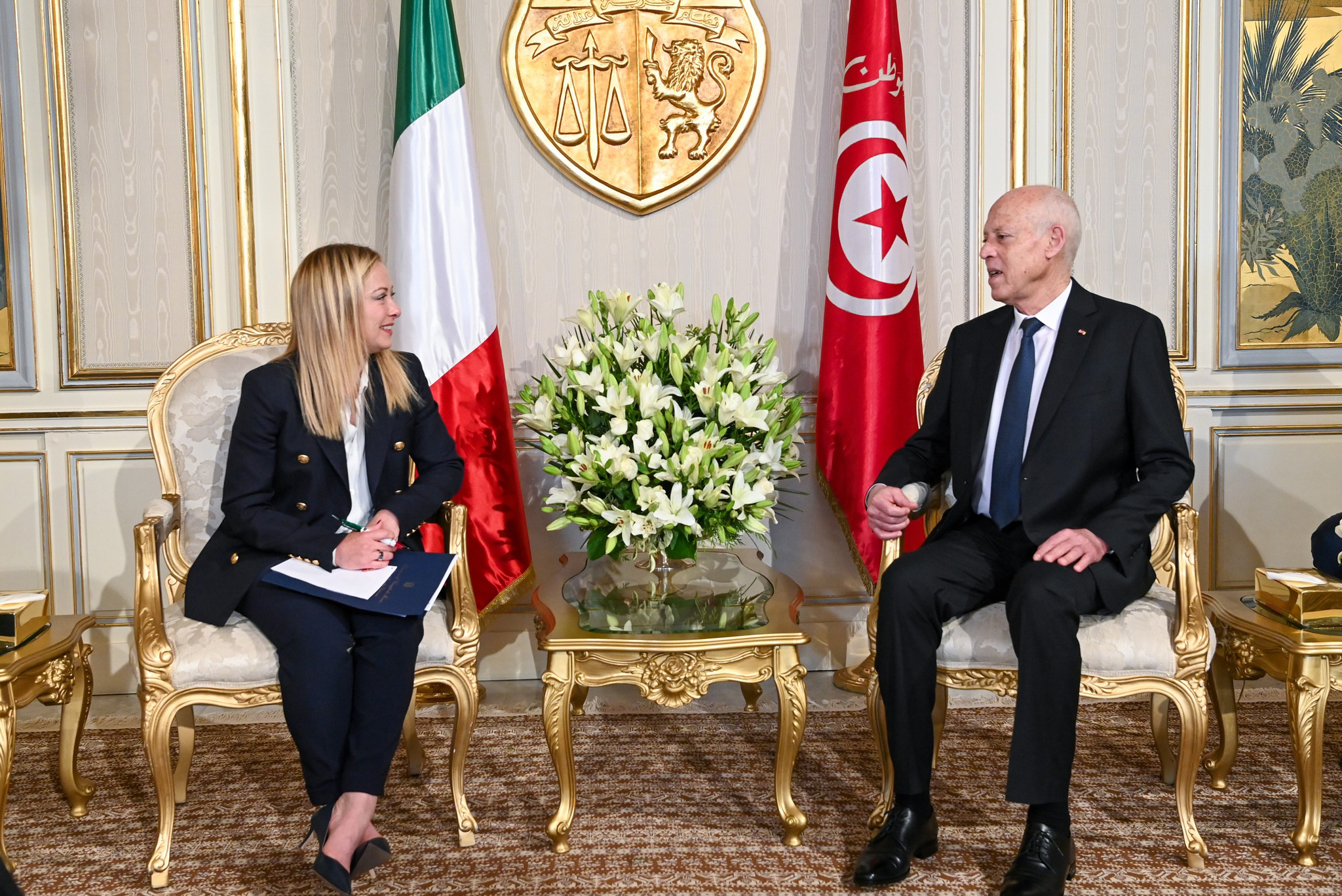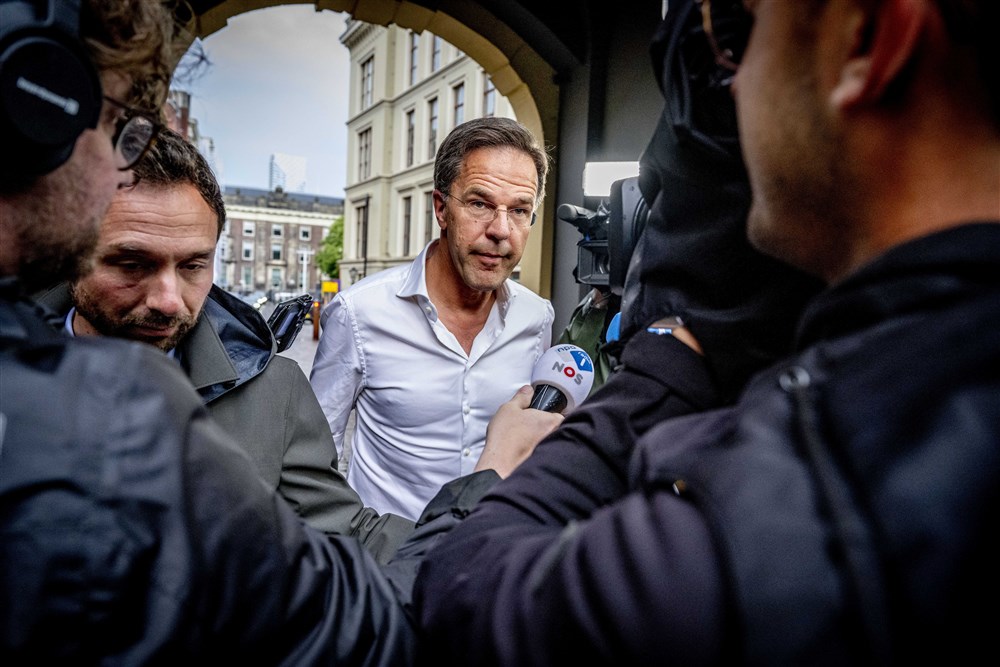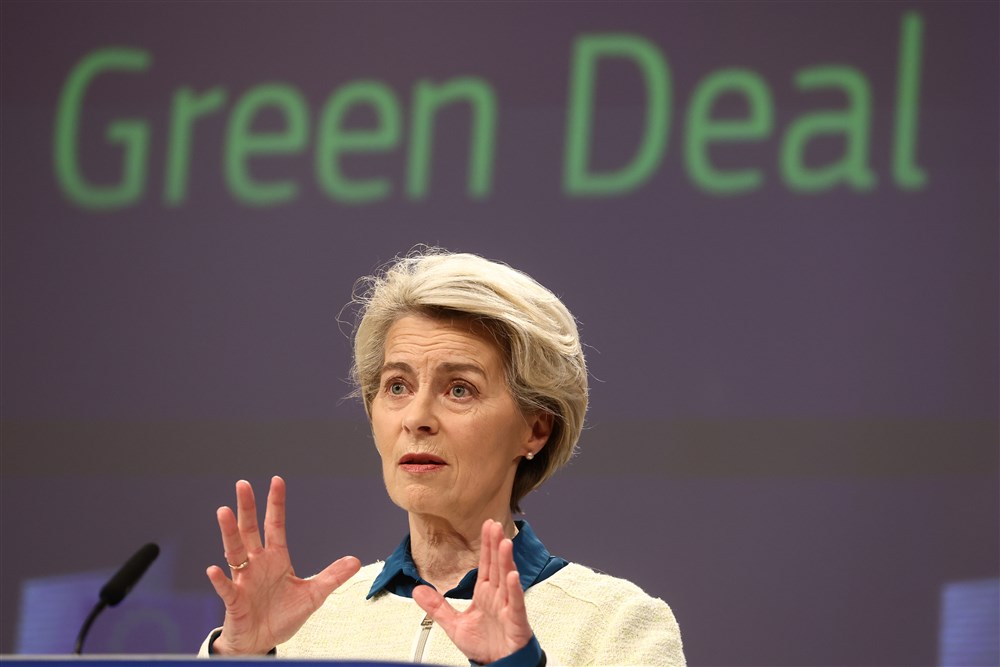The European Union and Tunisia have signed a memorandum of understanding to limit the number of migrants crossing the Mediterranean, officials from both sides have confirmed.
European Commission President Ursula von der Leyen, the heads of government of the Netherlands and Italy, and Tunisia’s President Kais Saied announced the signing of a declaration of intent in Tunis on July 16.
Von der Leyen emphasised that the deal will help both parties “crack down on criminal networks of smugglers and traffickers”.
“Human-traffickers exploit human desperation and we must break their reckless business model,” she said.
Our teams have worked very hard to deliver rapidly on a strong package, which is an investment in our shared prosperity, stability and in future generations.
It is built on 5 pillars ↓ https://t.co/xYKDk3tisJ— Ursula von der Leyen (@vonderleyen) July 16, 2023
The agreement will enable the EC to initiate financial aid of up to €900 million for Tunisia, a country in economic and political dire straits.
Tunisian President Kais Saied also praised the agreement, describing it as a “strategic and all-encompassing partnership”. He stressed the importance of Tunisia being treated as “a real equal”, stating that countries doing deals with the West “don’t want friendliness without respect”.
In return for the EU financial aid, Tunisia is to “enforce improved border control, take stronger action against smugglers and combat illegal crossings to reduce the number of people leaving for Europe”. Coordination with rescue operations is also set to be ramped up.
The EU will give €255 million to Tunisia in advance. The first €150 million will be used to buffer budgetary needs due to the African country’s economic crisis. Some €105 million will be invested in border control and anti-people-smuggling initiatives.
A further €300 million is to be made available for renewable energy cooperation between the Tunisia and the EU.
The bloc will also invest in Tunisia’s tech sector, alongside water management projects and sustainable agriculture efforts in the country.
Tunisian students will become eligible for temporary education and employment within the EU and will be given access to the bloc’s Erasmus university students exchange programme.
Some have credited Italian Prime Minister Giorgia Meloni as being the main architect of the deal, with Il Giornale noting that she had pushed for an EU agreement with Tunisia to stem the tide of migrant boats arriving on her country’s southern coast.
Meloni said that, apart from “addressing the migration crisis in an integrated manner”, the memorandum serves as “an important step towards establishing an EU-Tunisia partnership” that can establish itself as an authentic “model” in EU-North Africa relations.
Tunisia is the main transit country for migrants heading to Europe, with around half of those landing in Italy this year said to have come via the North African state. By July 14, Rome’s interior ministry had recorded more than 75,000 boat migrants as having arrived on Italy’s shores since the beginning of the year.
That compares to around 31,900 over the same period in 2022.
Dutch Prime Minister Rutte, meanwhile, described the latest agreement as being “essential to get a better grip on the fight against irregular migration”, adding that it would contribute to “economic growth, jobs and future prospects for the Tunisian economy”.
Today, President Kais Saied (@TnPresidency) of Tunisia and @EU_Commission President @vonderleyen signed the strategic partnership between the EU and Tunisia. Prime Minister @GiorgiaMeloni of Italy and I also attended the ceremony. This is a real milestone and a promising start to… pic.twitter.com/L2kZ0y0Hhm
— Mark Rutte (@MinPres) July 16, 2023
Not everyone is happy with the agreement, with some human rights organisations expressing anger that the EU would do a deal with a country accused of abusing migrants.
“Our government must take human rights seriously. No deal should be done with a country where it is clear beforehand that they are collaborating in human rights violations as a financier,” the Dutch division of Amnesty International stated.
The NGO claimed the new deal would cause suffering at the external borders of Europe and said that the current lack of legal migration routes will further boost human-trafficking.
Rutte insisted that human rights are an important element of the agreement and that the deal will combat the illegal crossings of the Mediterranean.
“This will break the lucrative business model of the human-smugglers,” he said.





